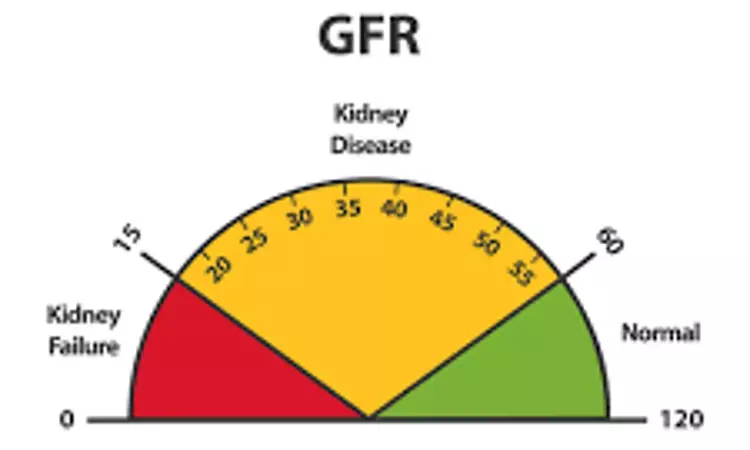- Home
- Medical news & Guidelines
- Anesthesiology
- Cardiology and CTVS
- Critical Care
- Dentistry
- Dermatology
- Diabetes and Endocrinology
- ENT
- Gastroenterology
- Medicine
- Nephrology
- Neurology
- Obstretics-Gynaecology
- Oncology
- Ophthalmology
- Orthopaedics
- Pediatrics-Neonatology
- Psychiatry
- Pulmonology
- Radiology
- Surgery
- Urology
- Laboratory Medicine
- Diet
- Nursing
- Paramedical
- Physiotherapy
- Health news
- Fact Check
- Bone Health Fact Check
- Brain Health Fact Check
- Cancer Related Fact Check
- Child Care Fact Check
- Dental and oral health fact check
- Diabetes and metabolic health fact check
- Diet and Nutrition Fact Check
- Eye and ENT Care Fact Check
- Fitness fact check
- Gut health fact check
- Heart health fact check
- Kidney health fact check
- Medical education fact check
- Men's health fact check
- Respiratory fact check
- Skin and hair care fact check
- Vaccine and Immunization fact check
- Women's health fact check
- AYUSH
- State News
- Andaman and Nicobar Islands
- Andhra Pradesh
- Arunachal Pradesh
- Assam
- Bihar
- Chandigarh
- Chattisgarh
- Dadra and Nagar Haveli
- Daman and Diu
- Delhi
- Goa
- Gujarat
- Haryana
- Himachal Pradesh
- Jammu & Kashmir
- Jharkhand
- Karnataka
- Kerala
- Ladakh
- Lakshadweep
- Madhya Pradesh
- Maharashtra
- Manipur
- Meghalaya
- Mizoram
- Nagaland
- Odisha
- Puducherry
- Punjab
- Rajasthan
- Sikkim
- Tamil Nadu
- Telangana
- Tripura
- Uttar Pradesh
- Uttrakhand
- West Bengal
- Medical Education
- Industry
GFR decline and urinary excretion rates of sodium negatively related in CKD patients: study

The GFR rate and urinary excretion rate are negatively associated in chronic kidney disease (CKD) patients, as per new study published in the Kidney international.
Chronic kidney disease (CKD) means your kidneys are damaged and can't filter blood the way they should. The main risk factors for developing kidney disease are diabetes, high blood pressure, heart disease, and a family history of kidney failure.
Multiple 24-hour urine collections are necessary to adequately assess sodium and potassium intake. So, a group of researchers assessed kidney function decline for four years after baseline in relation to seven-time averaged 24-hour urinary sodium and potassium excretion (UNaV, UKV), their UNaV/UKV ratio, and their categorical combination in outpatients with chronic kidney disease (CKD).
This retrospective cohort study was based on 240 outpatients with baseline chronic kidney disease (CKD) stages 3-5, baseline age 20 years or more (median age 72.0 years), and a median follow-up (with interquartile range) of 2.9 (1.4– 4.0) years. Outcome was the percentage change in annual slope of estimated glomerular filtration rate (delta eGFR per year).
The results of the study are as follows:
In linear mixed models, percentage changes in delta eGFR per year were -3.26% (95% confidence interval -5.85 to -0.60), +5.20% (2.34 to 8.14), and -5.20% (-7.64 to -2.69), respectively, per one standard deviation increase in the seven-time, averaged UNaV and UKV, and their UNaV/UKV ratio. Additionally, percentage changes per year in delta eGFR per year were -16.27% (-23.57 to -8.27) in the middle-to-high UNaV and low UKV group, compared with the low UNaV and middle-to-high UKV group.
Thus, the researchers concluded that their study reinforces the observation of opposite associations between GFR decline and urinary excretion rates of sodium (positive) and potassium (negative), respectively. Whether changes in dietary sodium and potassium intake slow GFR decline still requires further study.
Reference:
A multiple 24-hour urine collection study indicates that kidney function decline is related to urinary sodium and potassium excretion in patients with chronic kidney disease by Soshiro Ogata et al. published in Kidney International.
DOI: https://doi.org/10.1016/j.kint.2021.10.030
Dr. Shravani Dali has completed her BDS from Pravara institute of medical sciences, loni. Following which she extensively worked in the healthcare sector for 2+ years. She has been actively involved in writing blogs in field of health and wellness. Currently she is pursuing her Masters of public health-health administration from Tata institute of social sciences. She can be contacted at editorial@medicaldialogues.in.
Dr Kamal Kant Kohli-MBBS, DTCD- a chest specialist with more than 30 years of practice and a flair for writing clinical articles, Dr Kamal Kant Kohli joined Medical Dialogues as a Chief Editor of Medical News. Besides writing articles, as an editor, he proofreads and verifies all the medical content published on Medical Dialogues including those coming from journals, studies,medical conferences,guidelines etc. Email: drkohli@medicaldialogues.in. Contact no. 011-43720751


